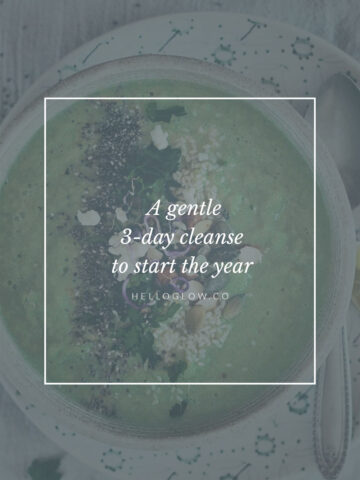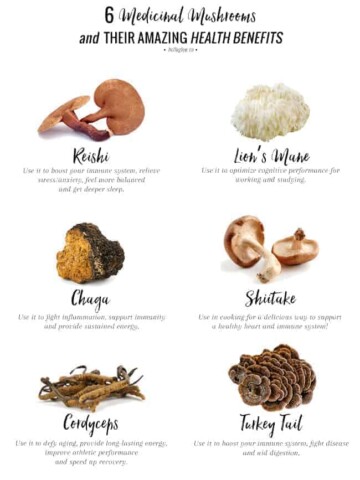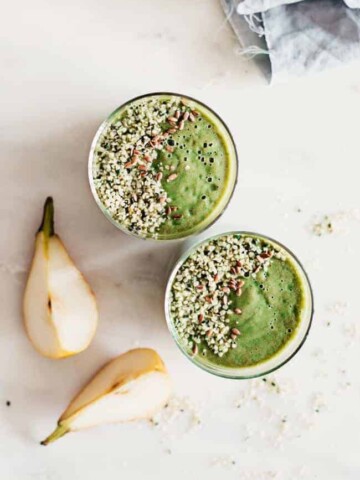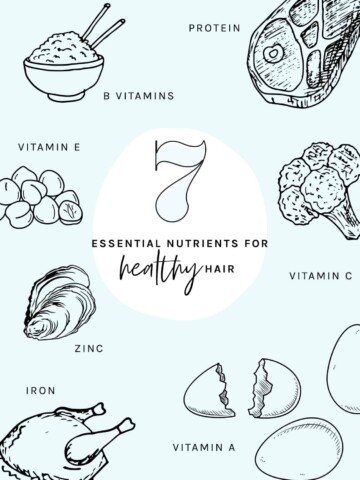The code to great skin can be a tough one to crack. Genetics plays a role, to be sure, as well as lifestyle factors, including your exercise, diet, stress level, and how much sleep you get.
You can’t control your genetics (bummer—I know), but you can certainly try to get enough sleep, manage your stress (easier said than done), and be mindful of what you eat. While we used to think that genetics played a huge role, it has become increasingly apparent that the rest is up to you and your lifestyle choices [source].
Certain nutrients play key roles in achieving and maintaining healthy skin, preventing wrinkles, and fighting acne. From anti-inflammatory benefits to supporting collagen formation, these are some of the most important nutrients to ensure you get in your diet or via supplements for supple, glowing skin.
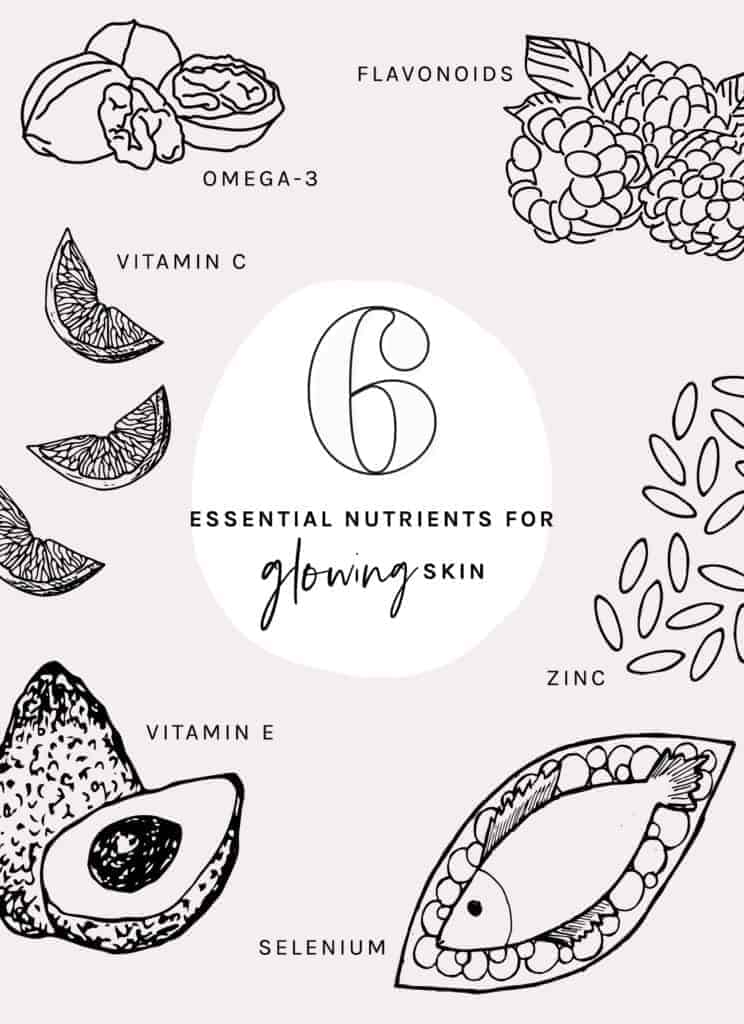
6 Essential Nutrients for Glowing Skin
Omega-3s
What they do: fight inflammation and improve the lipid barrier.
Omega-3 fatty acids offer powerful anti-inflammatory action [source], which protects against skin conditions like eczema. These essential fatty acids also contribute to skin repair, moisture content, and elasticity. But they don’t stop there! Omega-3s also play a role in regulating levels of the stress hormone cortisol, which helps prevent wrinkle formation and keep skin smooth.
Find them in: walnuts, flax, chia, hemp, fatty fish such as salmon, sardines, and mackerel.
Flavonoids
What they do: protect against UV damage, fight inflammation, and boost circulation.
Flavonoids are a class of phytonutrients that improve immunity, reduce inflammation, and protect against UV damage from the sun [source]. Heart-healthy flavonoids can also boost circulation, and in particular, micro-circulation to the capillaries in your skin [source]. Improved circulation imparts that glowing skin we all desire and improves the delivery of nutrients and the removal of waste products.
Find them in: soybeans, cocoa, berries, and green tea.
Vitamin C
What it does: fights oxidative damage and supports collagen synthesis [source]
Vitamin C is an important nutrient in general, but especially for your skin. It’s a powerful antioxidant, which means it helps eliminate free radicals and reduces oxidative stress that wreaks havoc on your body. Vitamin C also promotes collagen synthesis, which is important for making your skin soft and supple.
Vitamin C works to replenish vitamin E, another powerful antioxidant that protects against the effects of environmental insults.
Find it in: citrus fruits like oranges, lemons, and grapefruit, broccoli, Brussels sprouts, parsley, kale, kiwi fruit, bell peppers, and beet greens.
Selenium
What it does: promotes skin elasticity and fights acne [source]
Heard of selenium before? It’s a trace mineral with powerful antioxidant properties. Selenium is hard at work maintaining skin elasticity and firmness. It enhances both the absorption and function of vitamin E, which prevents deterioration of the all-important collagen protein. Selenium also helps to prevent acne, which is good news for adult acne sufferers.
Find it in: wheat germ, onions, walnuts, whole grains, brown rice, brazil nuts, tuna, red snapper, seafood, and poultry.
Zinc
What it does: supports skin regeneration [source], fights inflammation [source] and acne [source]
Zinc is an important mineral that plays a role in repairing damaged tissue and also works to protect the skin from UV rays. Zinc deficiency is also a cause of acne. By regulating the production of oil in the skin, zinc works to prevent breakouts.
Find it in: oysters, poultry, pumpkin seeds, pecans, oats, cashews, beans and legumes, and whole grains.
Vitamin E
What it does: fights free radicals and prevents wrinkles and premature aging [source].
Vitamin E is probably the most commonly referenced nutrient for skin health—and with good reason. Not only do its antioxidant properties fight free radicals, but when combined with vitamin A, vitamin E is effective at preventing certain types of skin cancers. You’ll also counteract wrinkles and premature aging with vitamin E.
Find it in: avocado, almonds, walnuts, eggs, asparagus, oatmeal, sunflower seeds, pine nuts, and olives.
This post was medically reviewed by Dr. Jennifer Haley, a board-certified dermatologist with extensive experience in medical, cosmetic, and surgical dermatology. Learn more about Hello Glow’s medical reviewers here. As always, this is not personal medical advice, and we recommend that you talk with your doctor.
84
